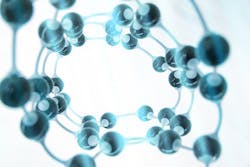MOVERS & SHAKERS: Wilo USA & American Water appoint new positions; QED Environmental Systems wins 2016 GreenGov award
Californians want more seawater desalination
Californians overwhelmingly support building more seawater desalination plants to address the state’s ongoing water needs, and most would be willing to pay a few dollars more a month for it, according to polls conducted by the Public Policy Institute of California and Tulchin Research. The state is currently considering a large-scale seawater desalination project in Huntington Beach that would produce 50 million gallons per day of locally controlled, drought-proof drinking water. The facility would be a public-private partnership between the Orange County Water District and Poseidon Water.
Aquabio celebrates 20th anniversary
U.K. water recycling company Aquabio Ltd. is celebrating its 20th anniversary. The company was set up as a private business in in Worchester, England in 1997, with a focus on innovation and environmental sustainability. Since then, the company has developed some of the world’s most advanced systems for the treatment and reuse of industrial wastewater, specifically in the fields of membrane bioreactors, reverse osmosis and anaerobic digestion. Aquabio is now part of the Freudenberg Group, a global company which operates in 60 countries around the world.
Reusable, carbon nanotube-reinforced filters clean toxins from water
Rice University researchers have developed carbon nanotubes in a tuft of quartz fiber that can remove toxic heavy metals from water. The filters absorb more than 99 percent of the metals such as cadmium, cobalt, copper, mercury, nickel and lead. Once saturated, the filters can be washed with a mild household chemical like vinegar and be reused. One gram of the material could treat as much as 83,000 liters of contaminated water to World Health Organization standards – enough to supply the daily needs of 11,000 people. An analysis of the new filters can be found in the July 2017 issue of Nature’s open access Scientific Reports.
Image courtesy of iStock: Rice University
Appointments
Wilo USA names new director of sales, water management
Wilo USA named Joseph K. Jackson as its new director of sales for water management. In this role, Jackson is responsible for overseeing business development, sales channel direction and general management on water and wastewater projects in the domestic municipal markets. He brings to the company more than 40 years of experience in global water management.
American Water executive appointed to National Academies board
American Water’s Vice President and Chief Science Advisor Dr. Mark LeChevallier was appointed to the Water Science and Technology Board of the National Academies of Sciences, Engineering and Medicine (National Academies). The board was established in the National Academies to provide a focal point for studies related to water resources accomplished under the aegis of the National Academy of Sciences and the National Academy of Engineering. Its objective is to improve the scientific and technological basis for resolving important questions and issues associated with the efficient management and use of water resources. Dr. LeChevallier has worked for American Water for more than 30 years and in his current role is engaged in research and development, innovation, environmental compliance and stewardship programs. He has authored or coauthored more than 100 research papers and is the author of the Dr. Water blog, which can be found at drwater.amwater.com.
Awards
QED Environmental Systems wins 2016 GreenGov Presidential Award
QED Environmental Systems was part of a team that won a 2016 GreenGov Presidential Award, for outstanding achievement in the pursuit of President Obama’s Federal sustainability goals. QED was part of the team that won the Keeping It Clean Award for an innovative groundwater treatment system at a former nuclear weapons production facility in Rocky Flats, Colorado. The system runs on battery power and recharges with solar power. The design enhances safety, improves groundwater treatment reliability, reduces long-term maintenance and costs, and reduces waste.

